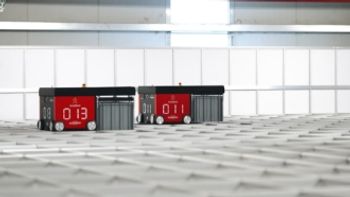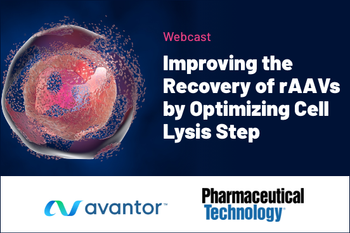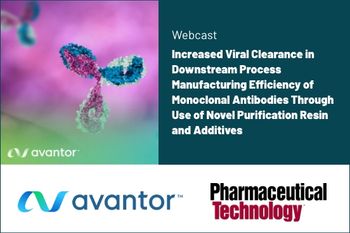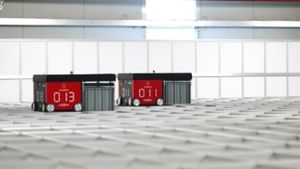
Determining the optimal hybrid set-up can be challenging, with trade-offs in cost and flexibility. Our strategic framework helps you design the optimal mix for your facility.

Determining the optimal hybrid set-up can be challenging, with trade-offs in cost and flexibility. Our strategic framework helps you design the optimal mix for your facility.

Webinar Date/Time: Thu, Nov 20, 2025 12:30 PM EST


Despite selecting the right, compendial excipients for a balanced formulation, you may encounter obstacles that delay market deadlines. Learn how to streamline the formulation and fill-finish process with the right raw material selection, secure and efficient fluid pathway design, comprehensive regulatory support, and supply chain transparency.

Biopharma companies often lack the capacity and infrastructure to handle large buffer volumes needed for mAb production. Avantor offers four key strategies to improve operational efficiencies and reduce facility footprint, such as pre-weighed, GMP-compliant raw materials or ready-to-use hydrated solutions. Learn more about these customizable solutions.

The growing complexity of therapeutic monoclonal antibodies (mAbs), especially bispecific antibodies, presents significant manufacturing challenges such as instability, low yields and aggregation. This article explores innovative solutions, including detergent-based viral inactivation as an alternative to low pH treatment, high- performance chromatography ligands and advanced formulation excipients.

Scaling up monoclonal antibody (mAb) production can be challenging, but it doesn't have to slow you down. Explore how our large-volume handling solutions, GMP-grade chemicals and customized solutions for process development, optimization, and validation help you scale up quickly and meet regulatory standards with confidence.

Can biopharma manufacturers avoid extra costs, potential problems and wasted production time by designing a fully compliant (cGMP) manufacturing process early on? This article explores where planning ahead, using compendial raw materials of the highest quality and purity, can yield substantial benefits to both productivity and patient safety.

Knowing the right time to introduce cGMP raw materials when scaling up mAbs manufacturing avoids production process redevelopment, delays and increased costs. Using cGMP grade reagents earlier makes for a seamless transition while maintaining quality and viability. Learn key considerations for a seamless scale up process in our GMP fact sheet.

Buffers are used in great quantities when producing monoclonal antibodies (mAbs), and many biopharmaceutical companies — even large ones — do not have the processing capacity or infrastructure in-house to handle these large volumes. Whether it’s providing quality, pre-weighed, GMP-compliant raw materials or the entire buffer preparation step, there are options available to optimize your process.

As the most expensive stage of monoclonal antibody production, downstream processing presents numerous opportunities to increase efficiency and raw material performance. This article discusses advances in purification process materials, as well as emerging technologies to aggregate and analyze data, as possible solutions to these challenges.

Webinar Date/Time: Thu, Nov 2, 2023 11:00 AM ED

Biologics manufacturers have been successful boosting yields and increasing throughput in upstream mAbs production. Those increased volumes create a new challenge: scaling downstream process chromatography to be as productive. This Avantor white paper details how technologies such as a novel protein A chromatography resin and the use of additives can improve efficiencies in this complex process step. The white paper also explores the benefits of expanding single-use and continuous processing systems to further streamline downstream production and improve cost profiles.


Developing more effective chromatography resins for mAbs downstream processing is important ⏤ but it's not the only way to improve impurity clearance. In this study of the use of additives to enhance resin performance, two mAbs chromatography resins were examined. Both were used for a capture step, and additives were screened to reduce the nonspecific binding of impurities. The goal of the study was to optimize chromatography steps and thus increase the capacity and removal of impurities.

Scaling production of mAb drugs remains a critical industry challenge – especially in downstream process chromatography steps. This Avantor White Paper details how technologies such as a novel protein A chromatography resin and the use of additives can improve efficiencies in this complex process step. It also reveals the potential for expanding single-use and continuous processing systems to help further streamline downstream production and improve cost profiles.

Finding more efficient ways to reduce processing times and improve downstream yields is a major bioprocessing industry challenge. In this study, two mAbs chromatography resins were examined. Both were used for a capture step, and additives were screened to reduce the nonspecific binding of impurities. The goal of the study was to optimize chromatography steps and thus increase the capacity and removal of impurities.

Wednesday, November 16, 2022 at 11 am ET | 8 am PT | 4 pm GMT | 5 pm CET This webinar will discuss challenges and key considerations for spray-dried formulations for inhalation, along with a review of current technologies and approved products utilizing particle engineering approaches.

Tuesday, November 8, 2022 at 11 am EDT | 10am CDT | 8am PDTThis webinar will provide a detailed look at successful procedures for developing effective viral clearance and purification strategies to improve mAbs downstream process efficiency through enhanced engineering of a novel Protein A resin, combined with selective additives in key process steps. The webinar will include details on new techniques and recommendations for optimizing process steps, to help reduce costs and process time and increase downstream yield.


Published: November 11th 2025 | Updated: